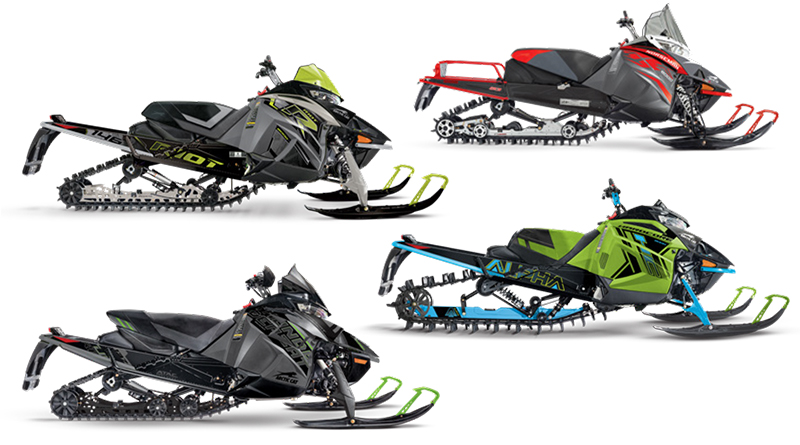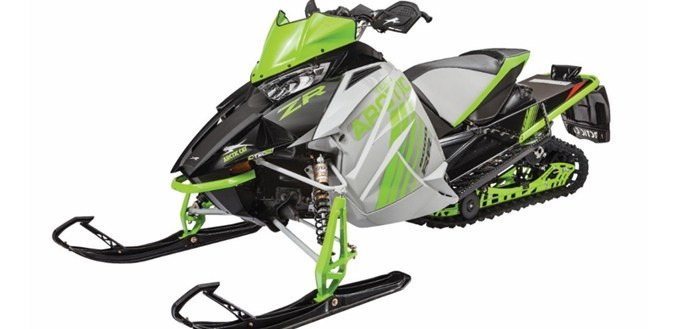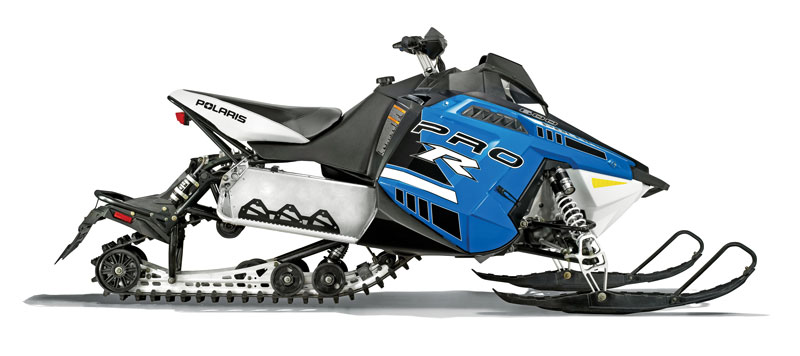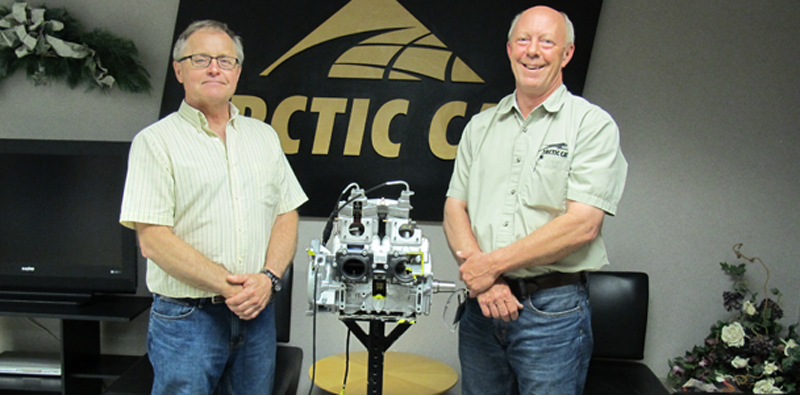The M chassis, introduced in 2005, gained instant accolades for its lightweight maneuverability and benchmark power-to-weight ratios. For 2007, there are two new engines to improve the power-to-weight even more: the new 800 and 1000 EFI twins, and the 600 EFI II engine carries over from last year.
There are track length options and package options depending on the engine size selected. The M6 comes with either a 141- or 153-inch track. M8s come with a 162-inch option, and there is also a Sno Pro version with suspension updates that replaces the “Limited” branding of previous years. The monster-bore 1000 engine has a 153- or 162-inch track option, both available in Sno Pro trim as well.
All M-Series models have an updated ACT drive system with a push-button reverse system.
Rider-forward ergonomics equip the machines for positive input while boondocking. Sleds feature wide, hooked handlebars with a grab strap for off-trail maneuverability.
Front Suspension: AWS VI; Shocks/Travel: Fox FLOAT/9.2 inches; Rear Suspension: FasTrack Long Travel; Shocks/Travel: Fox Zero Pro/17 to 19 inches; Features: The M8 and M1000 Sno Pro models have Fox FLOAT air-adjustable shocks on the front suspension and titanium rear suspension springs in the FasTrack Long Travel skid. Both upgrades are used to reduce weight.
All 2007 M-Series models have a Camoplast Challenger track with a lug height of 2.25 inches regardless of engine choice or track length. Track lengths and availability is as follows:
141 inches: M6 EFI, M8 EFI
153 inches: M6 EFI, M8 EFI, M8 EFI Sno Pro, M1000 EFI, M1000 EFI Sno Pro
162 inches: M8 EFI, M1000 EFI, M1000 EFI Sno Pro
1000 EFI Laydown:
Mountain riders who seek the best power-to-weight ratio owe it to themselves to check out this engine. The new big-bore displaces 999cc for 168 hp and it’s housed in the lightweight M-Series chassis. The EFI engine is fed from 50 mm throttle bodies, which is more fuel efficient than the former 900 Suzuki twin. 3D ignition, a twin spark plug-head and an engine knock sensor are used to produce 120 pound-feet of torque.





